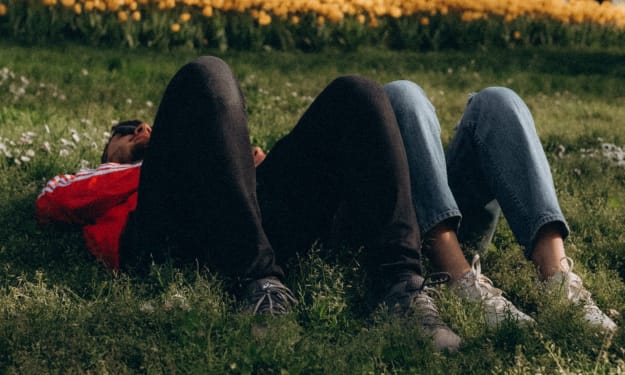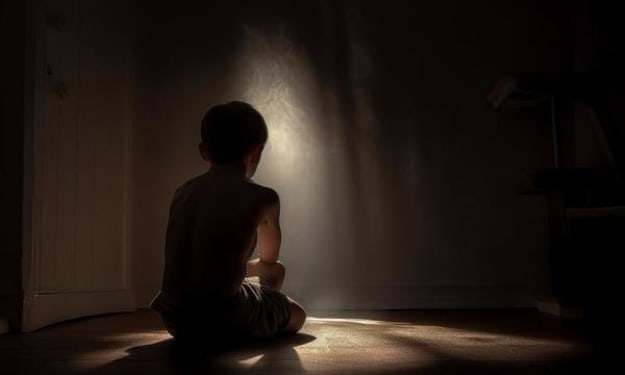Tending to Your Mental Health in Sobriety
5 suggestions based on what worked for me

For as long as I can remember, I have struggled with anxiety and depression. While I was always an anxious child, my anxiety didn’t get serious until my teenage years. Around the time that I was 16, I was officially diagnosed with Generalized Anxiety Disorder and Major Depressive Disorder.
At 19, after I’d entered college and began drinking heavily — often — the effects of my poor self-care habits became nearly unbearable. For the first time in my life, I met with a psychiatrist and was prescribed something to help manage.
After years of washing down my evening Zoloft with wine (and more wine, and then a little more for good measure), I finally started to question whether alcohol was serving me and my mental health.
In truth, when I finally quit drinking my primary motivation was the growing feeling that I was no longer in control of how much I was consuming. However, once removed from my life, I was able to clearly see the additional self-medicating I’d been doing for the past decade.
As with any coping strategy, its sudden absence can lead to tremendous upheaval in the stability of your mental health. As the effects of years of mismanagement of my mental illness cropped up and took over, the need to establish positive practices for caring for myself rose.
I started journaling
Taking 30 minutes to an hour each morning to journal has been one of the most life-changing habits I have developed over the past year and a half. Something about getting all of the thoughts out of my head and onto paper not only helps me process my emotions and stressors significantly faster, but it also keeps me from carrying all of that around all day, every day.
Obviously, I have a natural love for writing, so physically writing in a journal works best for me; but, I have friends who don’t have time or enjoy actually writing it all down who have tried audio recordings instead.
I took long walks
I’ve written before about my desire to be outside as much as possible in my early sobriety (see the article below), but going for long walks satisfied more than just my urge for sunshine and fresh air.
Having spent a lifetime exercising exclusively in ways that pushed my body hard — only to remain dissatisfied with how it looked — I decided to only move my body when and how I felt compelled to.
Walking was that.
Sometimes accompanied by a podcast or a call from a friend, other times accompanied only by the thoughts in my head and the noises around me, I tried to walk 3–4 miles a couple of times a week. It’s dedicated time to connect to how my body feels, connect to the world outside my home, and, often, connect to thoughts or ideas that have been living below the surface.
I read all of the books
For me, there is nothing like connecting with other people’s stories and seeing my own experiences reflected back at me. Knowing that I am not alone in what I am experiencing; that other people have felt what I’m feeling, have struggled through what I’m struggling with, and have survived what I’m surviving, can be such a powerful thing. Every time I read about someone else’s journey with their mental illness or their sobriety, I felt understood.
I slept, a lot
When I quit drinking I committed to listening to my body. It wasn’t an active choice, but rather, a natural consequence of abstaining. Every day brought new feelings to the surface — both emotional and physical. Before I quit I had spent years pushing through bad days until I’d eventually get “sick.” Then I’d spend a couple of days in bed, sleeping 18–20 hours a day, barely eating or eating too much, until I felt better. I’d tell my boss, my mom, myself, that it was a head cold or a little bug. Truthfully, I never knew why I felt ill, I just knew that I did.
This cycle repeated every couple of months for years on end. I’d go to my doctor and explain that I’d basically spent 3 days straight asleep and she’d run blood tests and check my vitals and conclude that nothing in particular was wrong.
As I refined my ability to listen to my body, I began to discover the amount of daily rest I actually require. If I had a particularly anxious day then I’d make myself some tea, put on a comfort movie, and lay in bed early that evening. Rather than fight anxiety and stress with happy hours and bottomless brunch, I started self-soothing with the thing I needed most: a break.
And when all else failed, I took a Xanax
I am not a medical professional and am in no way implying that medication is the right solution for everyone. What I will say, is that I am not sure I would still be here without the help of a couple pills of different names and shapes. I have clinical depression. Without medication, I suffer — deeply; and, once that suffering goes on for too long, my thoughts go to a terrifying place.
Early on in sobriety, before I had made the choice to start taking Zoloft again, I remember one day in particular, the 4th day in a stretch of especially bad days, I looked at my husband through teary eyes and said “I just want to go to an institution so I can take a break. Can I please just go somewhere where people can medicate me and I don’t have to live inside of this brain?”
It’s tough. Mental illness is fucking tough.
So, when it’s especially tough; when it’s noon and I’m working and I just had a panic attack for seemingly no reason or I’ve spent the last 2 days in bed and need to clean my house but don’t even have the energy to clean myself, I take a damn pill. And I’m always happier for it.
It’s not a long-term coping strategy, but sometimes what I really need is a short-term fix; something to help me survive this especially hard day so I have the energy to wake up the tomorrow and do it all again.
About the Creator
Taylor Moran Writes
I write about sobriety & mental health. Subscribe to my weekly newsletter here: https://www.gratefullysober.com/
Enjoyed the story? Support the Creator.
Subscribe for free to receive all their stories in your feed. You could also pledge your support or give them a one-off tip, letting them know you appreciate their work.






Comments
There are no comments for this story
Be the first to respond and start the conversation.